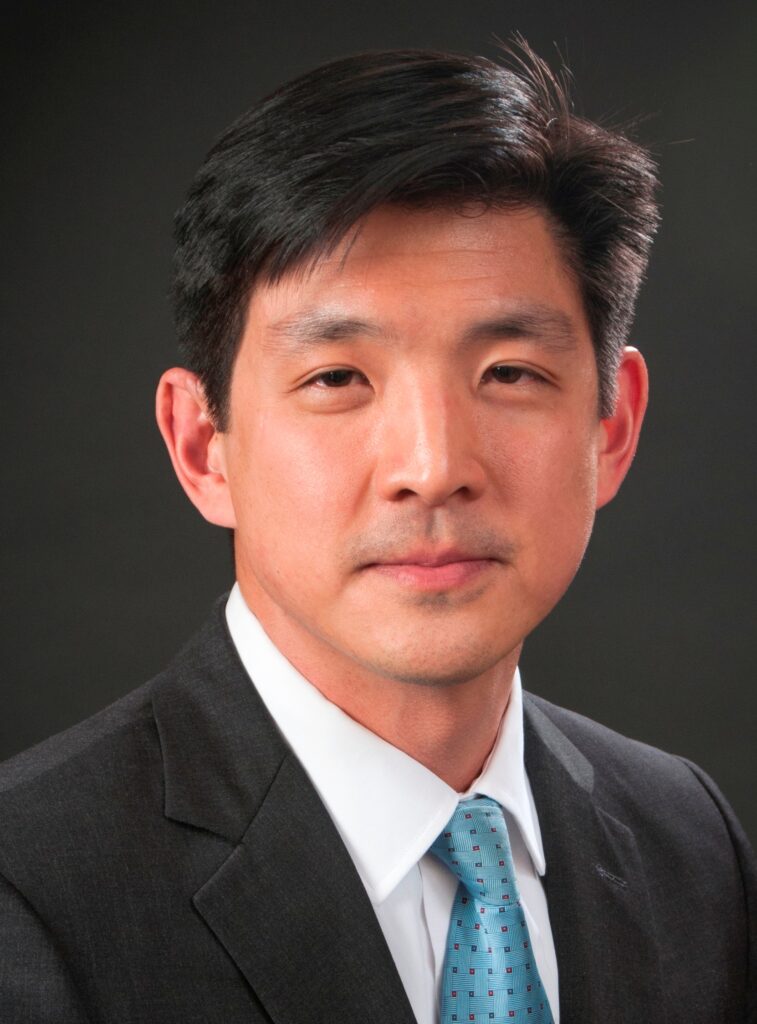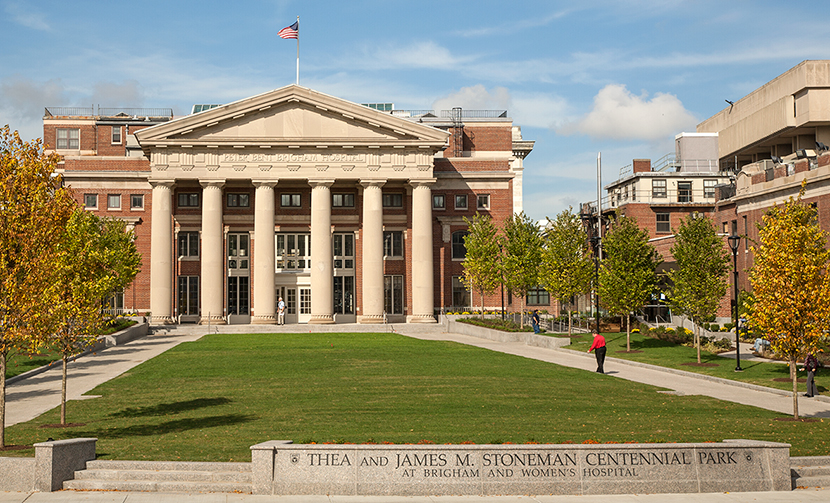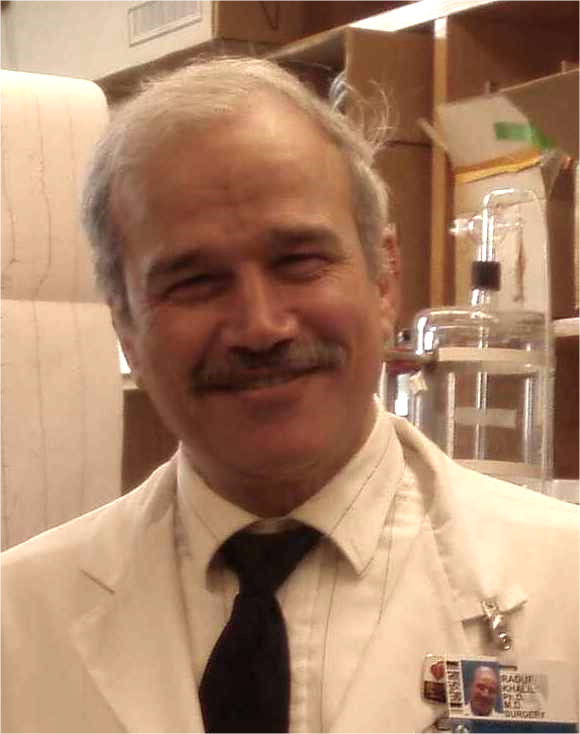Raouf A. Khalil, MD, PhD, has been awarded a National Institutes of Health (NIH) grant for his study “Vascular mechanisms of hypertension-in-pregnancy.”
Normal pregnancy is associated with increased cardiac output and decreased vascular resistance in order to maintain adequate blood supply to the developing fetus. These beneficial hemodynamic changes do not occur in women with preeclampsia. Preeclampsia is a complication of pregnancy characterized by hypertension and fetal growth restriction; however, the underlying mechanisms are unclear. Reduction in uterine perfusion pressure and the ensuing placental ischemia/hypoxia trigger the release of placental factors such as TNF-alpha and reactive oxygen species.
The objectives of Dr. Khalil’s study are to understand how the release of placental factors could lead to endothelial cell dysfunction and reduction in vasodilator substances such as nitric oxide and prostacyclin and to test the hypothesis that an imbalance between vasodilator matrix metalloproteinases MMP-2 and -9 and vasoconstrictor MMP-1 and -7 triggered by an upstream increase in ADAM-17 activity is a major mechanism of inadequate uteroplacental remodeling and vascular dysfunction in hypertension in pregnancy. Disruption of the vasodilator/vasoconstrictor MMP balance results in inadequate uteroplacental remodeling, decreased vasodilation, increased vasoconstriction and hypertension in pregnancy.
Consequently, correcting MMP imbalance by upregulating vasodilator MMP-2 and -9, or downregulating vasoconstrictor MMP-1 and -7 or reducing the upstream ADAM-17 activity should improve uteroplacental remodeling, promote vasodilation, and reduce vasoconstriction and hypertension in pregnancy, and thereby provide a new approach for the management of preeclampsia.
Raouf A. Khalil, MD, PhD
Lead Investigator, Division of Vascular and Endovascular Surgery, Vascular Surgery Research Laboratories, Brigham and Women’s Hospital
Associate Professor, Harvard Medical School
Dr. Khalil received his medical degree from Cairo University and a master’s in pharmacology from Assiut University. He then completed his PhD in vascular pharmacology at the University of Miami School of Medicine. After completing his postdoctoral training at Harvard University and Beth Israel Hospital, he joined the faculty in the Department of Physiology at the University of Mississippi Medical Center. Dr. Khalil joined the Department of Surgery at the Brigham in 2004 and has since demonstrated excellence in research and teaching programs for the past 15 years.
His achievements have been recognized for his important contributions in the field of vascular surgery research, his scholarly reputation and his involvement in teaching programs. He is a highly productive, nationally recognized investigator in the field of smooth muscle physiology who has made important contributions as a scientist and educator. Dr. Khalil has authored more than 170 peer reviewed publications in several highly respected scientific journals. He has served as editor, editorial board member and reviewer on more than 100 scientific journals. Dr. Khalil has served as a member of numerous National Institutes of Health (NIH) and American Heart Association (AHA) study sections and several international grant review panels. He has also mentored more than 160 postdoctoral fellows and graduate and undergraduate students.
Dr. Khalil’s major research interests include smooth muscle physiology and pharmacology, pathophysiology of vascular restenosis, coronary artery disease, essential hypertension, and hypertension-in-pregnancy and preeclampsia. He has been interested in understanding the mechanisms of vascular smooth muscle contractility and growth, Ca2+ -dependent and Ca2+ -independent mechanisms of cell activation, Ca2+ homeostasis in living cells, signal transduction, G proteins, protein kinase C and kinase cascades. His laboratory uses state-of-the-art technology for measurement of vascular function and signaling utilizing advanced physiological assays, molecular biology techniques, fluorescent probes, immunofluorescence and immunocytochemistry, digital imaging microscopy and confocal microscopy. His research has been continuously funded since 1991 by grants from the AHA and the NIH/National Heart, Lung, and Blood Institute (NHLBI).
Dr. Khalil’s research has been centered on several funded projects, including “Mechanisms of gender-specific differences in vascular tone in hypertension,” “Vascular protective role of endothelin B receptors during high salt diet,” “Vascular angiotensin type-2 receptor in normal and hypertensive pregnancy,” “Role of endothelin B receptor in vascular protection in females,” “Mechano-sensitive hypoxia-inducible factor-MMP pathway in venous insufficiency,” “Evaluation of sulodexide in the modulation of matrix metalloproteinases and their effects on venous endothelial and smooth muscle function” and “Vascular mechanisms in pregnancy-induced hypertension.”


